Table of Contents
ToggleIn a world where writers often wrestle with blank pages and endless self-doubt, ChatGPT swoops in like a literary superhero. Imagine having a brainstorming buddy who never runs out of ideas and always has your back. Writing a book can feel like climbing a mountain, but with ChatGPT, it’s more like taking the scenic route with a trusty GPS.
Whether you’re a seasoned author or a newbie with a wild story idea, this AI tool can help transform your thoughts into a cohesive narrative. It’s like having a co-author who’s always ready to brainstorm, edit, and even crack a joke or two. So grab your coffee, buckle up, and get ready to unleash your creativity with ChatGPT—your new best friend in the writing world.
Understanding ChatGPT
ChatGPT serves as an advanced language model designed for numerous writing tasks. This AI tool offers insights and suggestions, enabling writers to develop and refine their ideas seamlessly.
What Is ChatGPT?
ChatGPT is a conversational AI developed by OpenAI. It utilizes deep learning techniques to generate human-like text based on prompts provided by users. With its vast database and training, it can mimic various writing styles and genres. Writers benefit greatly from its ability to provide contextually relevant suggestions. This makes ChatGPT not just a tool but a valuable collaborator in the writing process.
How ChatGPT Works
ChatGPT operates through a method known as transformer architecture. This technology analyzes input and generates responses by predicting the next word based on prior context. Users can interact with ChatGPT by entering prompts, receiving instant feedback and ideas. The system continuously learns from interactions, enhancing its ability to produce relevant and coherent text. This capability allows writers to explore different angles and perspectives, fostering creativity and depth in their writing.
Planning Your Book

Planning a book sets the foundation for a successful writing journey. This stage involves several critical steps, each playing a significant role in shaping the final narrative.
Defining Your Genre
Choosing a genre focuses the direction of the story. Fiction, non-fiction, fantasy, and thriller each present distinct conventions and audience expectations. Identifying the genre enhances clarity during the writing process. It also informs choices about tone, style, and character development. Effective writers analyze successful works within their chosen genre to understand reader preferences, trends, and thematic elements. Additionally, leveraging ChatGPT can help generate genre-specific ideas, ensuring strong adherence to established norms while allowing for creativity in storytelling.
Outlining Your Ideas
Creating an outline organizes thoughts and ideas systematically. A clear outline helps maintain logical progression throughout the book. Writers can begin with broad themes, then break them down into chapters and key plot points. Engaging with ChatGPT during this phase allows for brainstorming and structural adjustments. Writers can request input on character arcs, chapter arrangements, or key events, enhancing coherence and flow. Utilizing tools like bullet points or mind maps encourages effective visual representation of ideas, ensuring nothing essential is overlooked.
Writing Process with ChatGPT
Utilizing ChatGPT during the writing process enhances both creativity and productivity. Writers can take advantage of this AI tool at various stages to streamline their efforts.
Generating Content
ChatGPT assists in transforming vague ideas into structured narratives. By entering prompts with specific themes or character concepts, writers receive tailored content suggestions. This approach fosters inspiration, allowing authors to explore diverse plot directions. Engaging with ChatGPT can surface fresh perspectives, encouraging experimentation with different styles and tones. The model generates cohesive scenes or chapters quickly, reducing the time spent on initial drafts. Utilizing this rapid generation helps writers break through blocks and maintain momentum in their project.
Editing and Refining
This AI tool also plays a pivotal role in the editing process. Writers can input their text and request feedback on clarity, style, or grammar. ChatGPT highlights potential improvements, offering alternative phrasing and structural adjustments. Iterative refinements enhance the overall quality of the writing. When focused on specific sections, this instant feedback enables writers to polish their work effectively. Leveraging ChatGPT for edits creates a collaborative atmosphere, making it easier to develop a final product that aligns with the author’s vision and goals.
Tips for Effective Collaboration
Effective collaboration with ChatGPT enhances the writing experience. Writers benefit from clear communication and thoughtful engagement with the AI.
Providing Clear Prompts
Specific prompts yield more focused responses. Detail matters, so including context about themes or characters helps ChatGPT tailor suggestions. For instance, a prompt like “Suggest character traits for a detective in a mystery novel” generates more relevant ideas. Writers should ask direct questions to guide the AI’s input. Clarity facilitates a smooth exchange, ensuring the output aligns closely with the writer’s vision. Including examples of desired styles or tones also supports this collaboration, allowing for richer suggestions.
Iterating on Responses
Iterating on initial responses enables deeper exploration of ideas. Writers can build on previous suggestions to refine their narrative structure. Asking follow-up questions fosters a dialogue that uncovers hidden potential in concepts. Providing feedback on generated content further enhances the results. For example, if a response isn’t quite right, communicating specific elements that need adjustment leads to improved iterations. Engaging in this manner cultivates a collaborative environment, making the final product resonate more with the writer’s intent.
Common Challenges
Writers using ChatGPT often face a few common challenges. Awareness of these obstacles can enhance the writing experience.
Addressing Writer’s Block
Overcoming writer’s block remains a frequent struggle. Writers might stare at blank screens, feeling paralyzed by the pressure to produce. ChatGPT helps alleviate this by offering prompts that spark inspiration. Engaging in dialogue with the AI can reveal hidden ideas that ignite creativity. Setting aside perfectionism allows authors to explore new themes without fear. Experimentation often leads to unexpected breakthroughs in narrative structure or character development.
Managing Expectations
Setting realistic expectations is crucial in the writing process. Anticipating perfection at the outset can lead to frustration. Recognizing that first drafts typically lack polish helps create a more productive mindset. Emphasizing progress over perfection fosters a positive writing environment. Writers can utilize ChatGPT to shape initial ideas into coherent narratives gradually. A collaborative approach with the AI often encourages greater exploration of concepts while allowing room for improvement in later revisions. Balancing ambition with patience yields the best results in writing development.
Harnessing ChatGPT can transform the writing journey into a more engaging and productive experience. By acting as a reliable brainstorming partner it helps writers navigate obstacles and refine their narratives. The collaborative nature of this AI tool not only sparks creativity but also enhances the overall quality of the writing.
Writers can leverage ChatGPT’s capabilities throughout the entire process from planning to editing. By maintaining clear communication and providing specific prompts they can maximize the benefits of this innovative technology. Embracing this partnership allows authors to focus on their unique voice while enjoying the journey of bringing their stories to life.




